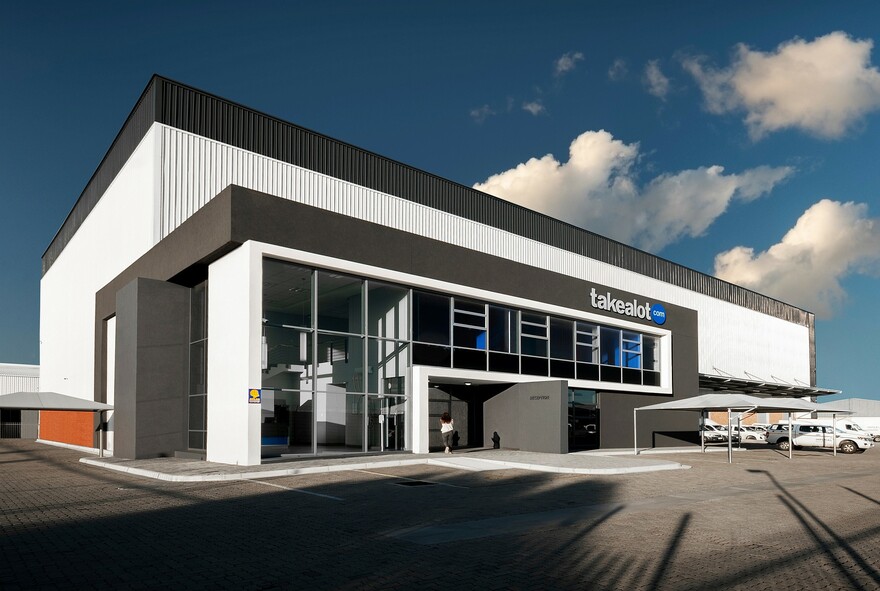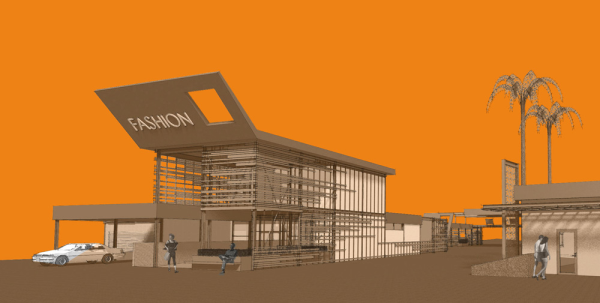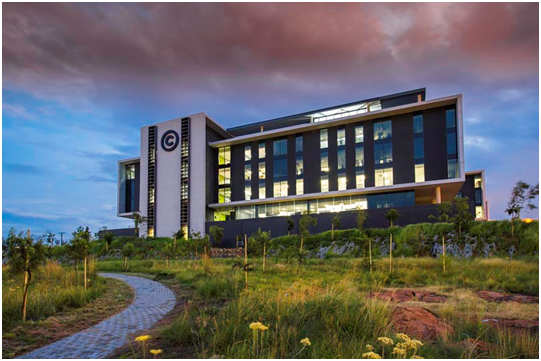commercial architects vs. Residential Designers : How to Choose the Right Professional
Exactly How Commercial Architects Can Transform Your Company Area With Professional Layout Providers
Commercial architects play a vital function in improving company environments. Their know-how in layout can significantly improve both functionality and aesthetic appeals. By producing spaces that show a brand's identification, they boost operational effectiveness and employee complete satisfaction. The impact of their job prolongs beyond plain look. Comprehending the subtleties of cooperation and sustainability can bring about transformative outcomes. What particular elements make these transformations effective?
Comprehending the Duty of Commercial Architects
Commercial architects play an essential role fit company settings that are both functional and cosmetically pleasing. They specialize in developing areas tailored to the certain demands of companies, guaranteeing that every square foot is made use of successfully. These experts integrate aspects such as spatial format, lighting, and materials to boost productivity and worker health. By collaborating with clients, business architects collect understandings right into functional needs and brand name identification, equating these right into ingenious designs.Additionally, they browse intricate structure codes and zoning regulations, guaranteeing compliance while making best use of design capacity. Their expertise encompasses sustainability methods, advertising power efficiency and eco-friendly materials in their jobs. Via their imaginative vision and technical knowledge, business architects not just develop enticing rooms but also foster environments that promote collaboration and growth. Eventually, their contributions significantly affect the general success and picture of a business.
Benefits of Specialist Design Services

Tailoring Rooms to Your Brand Identity
Tailoring spaces to a brand name's identification is essential for sharing its core worths and goal. Commercial architects play a critical function in improving an organization's aesthetic identification with thoughtful style options. By lining up building components with brand name principles, business can produce environments that resonate with customers and workers alike.
Mirroring Brand Worths
Exactly how can a well-designed space embody a company's core worths? Commercial architects play a crucial role fit environments that reverberate with a brand name's identity. By incorporating components such as color pattern, materials, and formats, they develop areas that reflect the significance of the company. For example, a tech firm could choose open layouts and contemporary home furnishings to convey technology and collaboration, while a deluxe brand name might select classy coatings and intimate rooms to evoke exclusivity and elegance. Thoughtful layout not only enhances functionality yet likewise promotes a solid link in between staff members, clients, and the brand. Inevitably, a well-crafted setting serves as a concrete representation of a business's goal and vision, reinforcing its values at every touchpoint.
Enhancing Aesthetic Identification
What aspects can efficiently raise a brand's aesthetic identification within a commercial area? Commercial architects play a critical duty in incorporating design functions that resonate with a business's ethos. Color design, typography, and products can be purposefully selected to show brand worths while making sure aesthetic allure. In addition, integrating logos and brand name imagery into the style can create a natural aesthetic narrative. Lights design can even more enhance the atmosphere, assisting customer assumptions and experiences (commercial architects). Format and furnishings options ought to align with the brand name's personality, whether it's contemporary, standard, or innovative. Eventually, a well-designed industrial area not only brings in clients but additionally reinforces brand acknowledgment, developing an enduring impact that fosters commitment and interaction
Enhancing Functionality and Performance
Enhancing capability and efficiency in commercial areas involves maximizing area application and making workflows that streamline procedures. Architects concentrate on creating formats that reduce wasted area while facilitating smooth modifications between jobs. This method not just enhances efficiency however likewise adds to a more natural workplace.
Optimizing Area Application
Reliable room use is a vital consider industrial design, where the style must balance looks with functionality (commercial architects). Architects utilize various strategies to make the most of offered square video footage while making certain that each area offers an unique function. By evaluating workflow, web traffic patterns, and individual demands, architects can produce layouts that improve both staff member efficiency and customer experience. Multi-functional spaces, flexible furniture plans, and maximized storage options are essential components in attaining this goal. Additionally, integrating all-natural light and open spaces fosters an extra welcoming ambience, more boosting the energy of the setting. Inevitably, effective space use not only boosts operational efficiency however additionally contributes positively to the general brand name photo, making it an essential factor to consider in commercial design
Structured Operations Design
Just how can a well-designed operations transform a commercial space into a center of productivity? Streamlined workflow style focuses on maximizing the physical layout and functional procedures within a business atmosphere. By tactically organizing workstations, meeting areas, and sources, architects can eliminate unneeded movement and improve cooperation. This thoughtful style reduces diversions and helps with communication, allowing workers to concentrate on their tasks more successfully. Additionally, incorporating modern technology into the process can further automate procedures, reducing time spent on regular jobs. As an outcome, businesses experience boosted worker morale and increased result, developing a dynamic atmosphere that fosters innovation. Ultimately, purchasing structured process layout not only improves performance but additionally places a business room for sustainable growth and success.
Fostering Collaboration With Design
Although contemporary workspaces usually prioritize private efficiency, the style of industrial areas significantly emphasizes collaboration as a vital vehicle driver of innovation and team cohesion. Architects play an essential function in producing settings that promote go communication among staff members. Open up layouts, multifunctional rooms, and purposefully positioned public locations encourage spontaneous conversations and conceptualizing sessions.Incorporating aspects such as movable furniture and adaptable conference room allows teams to reconfigure areas based on their joint requirements. Furthermore, incorporating innovation, like interactive white boards and video conferencing tools, improves the ability to interact efficiently, despite location.Natural light and biophilic style aspects additionally add to a more welcoming environment, advertising comfort and health, which are important for productive synergy. By focusing on these elements, industrial architects can create vibrant settings that not just enhance cooperation but also drive total organization success.
Sustainable Design Practices in Commercial Architecture

Instance Researches: Effective Transformations by Commercial Architects
The execution of sustainable layout techniques has not just improved the approach to commercial style yet has actually also brought about impressive transformations in numerous company areas. One notable case is the redesign of a tech company's head office, where architects integrated all-natural light and eco-friendly wall surfaces, causing enhanced worker health and efficiency. This makeover decreased energy expenses by 30% and boosted the business's public image.In an additional instance, a retailer undertook a total overhaul, using redeemed products and energy-efficient systems. This not only attracted eco-conscious consumers however also enhanced foot traffic by Our site 25%. A third case involved a corporate office that accepted an open-plan design with versatile work spaces, fostering cooperation among groups. The architects' emphasis on producing a vibrant and versatile atmosphere considerably increased staff member satisfaction. These instance studies exhibit just how industrial architects can develop impactful areas that straighten with business objectives and sustainability efforts.
Often Asked Questions
How Much Do Commercial Architecture Provider Commonly Expense?
The price of business style services differs extensively, commonly varying from $100 to $250 per hour. Variables influencing rates consist of project intricacy, location, and the architect's experience, making it essential for services to get thorough quotes.
What Sorts Of Services Benefit A Lot Of From Commercial Architects?
Numerous companies, including retail, hospitality, and corporate offices, considerably take advantage of industrial architects. These experts enhance functionality, aesthetic appeals, and brand name identification, guaranteeing areas are maximized for client involvement and staff member performance, inevitably promoting service development.
How much time Does a Business Style Task Typically Take?
The timeline for a commercial style task generally ranges from numerous weeks to a number of months. Variables affecting duration include project complexity, governing authorizations, and partnership amongst stakeholders, every one of which can impact overall conclusion time.
Can I Employ a Commercial Designer for Remodellings Only?
Yes, working with a business designer for improvements is feasible. Numerous architects specialize in improvement projects, offering experience in optimizing existing spaces while sticking to laws and improving functionality, looks, and general value of business environment.
What Qualifications Should I Try to find in a Commercial Architect?
